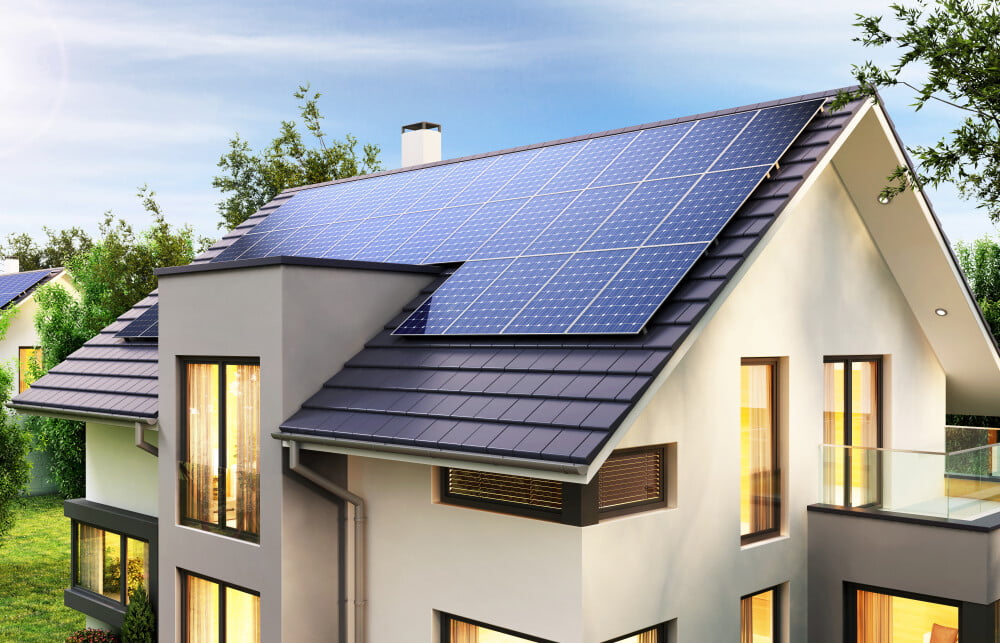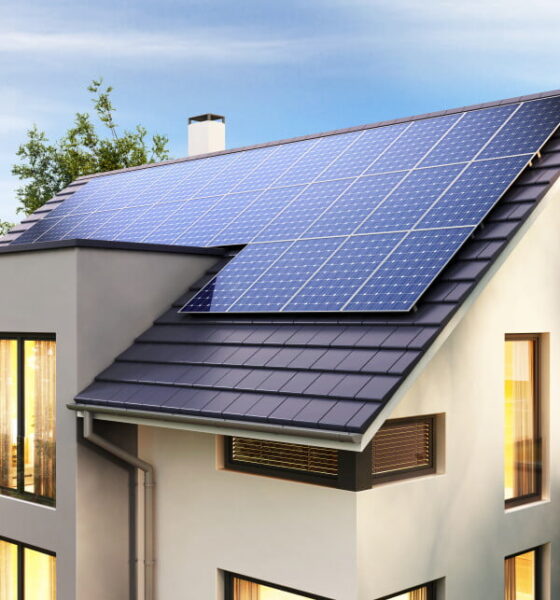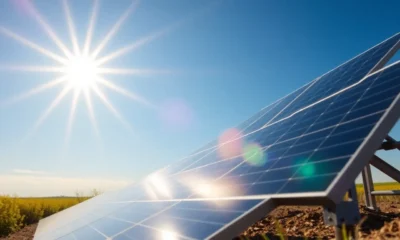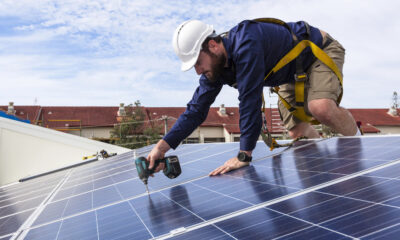Utilizing solar energy is a relatively new method of powering a home that has quickly become popular globally. Solar panels can contribute to your savings over time since having them means you no longer have to deal with the rising or variable costs of electricity. They can also do a lot to lower your carbon footprint.
Unfortunately, a lot of people are shying away from the prospect of creating a solar-powered home because the idea seems daunting and challenging at first glance. If you happen to be one of them, keep reading to learn how you can make the process stress- and hassle-free. You might be surprised to know that you can quickly determine the size of the system, select the type you want, and install solar panels and safety switches set up and connected. It’s also worth noting that the cost of your solar power structure would depend on your electricity use.
Solar Energy
This is energy emitted by the sun that produces heat and is capable of generating electricity. The amount of solar energy that reaches the earth is surplus to the world’s present and expected energy needs. Companies such as Smart Solar Energy are at the forefront in harnessing this natural power source since it promises to fulfill all future energy requirements. In the current century, solar energy is anticipated to be the next big thing, especially since it’s unlimited in supply, it doesn’t lead to pollution, and it’s renewable.
How To Have A Solar-Powered Home
In setting up your very own solar-powered home and saving money with it, here are six tips you should consider:
1. Seek Assistance From An Expert
Get the help of an expert who is familiar with the procedures involved in using solar power for residential purposes. Skilled professionals are in a position to help you avoid making costly mistakes when installing or fitting your solar power system.
2. Consider The Amount Of Space Available
Prior to investing your time and resources in a solar system, it’s essential to make sure there’s enough room for it on your property. Additionally, your past power usage will dictate the number of panels you’ll require to power your home. You also have to figure out where to install the solar panels. Will they be fitted on the roof or placed on the ground, or will you go for both options?
It’s equally vital to observe the sun’s movements and find out if your desired position for the solar panels receives adequate sunlight on a daily basis. Don’t place your system in an area where the shadows of adjacent buildings naturally fall during the day. If you’re looking to have your solar panels installed on the roof, you must make sure your roofing is strong enough to withstand their weight.
3. Estimate Your Energy Requirements
In order to accomplish this, you have to calculate the average of the kilowatt-hour (kWh) figure indicated at the bottom section of your past electricity bills. Ensure that your household’s energy requirements for each season are taken into account and that the power you’re aiming to generate can support your needs even on the busiest days.
4. Do Your Research
By educating yourself before taking the steps to have a solar-powered home, you can better understand how electrical energy and solar power systems work. More importantly, awareness is the secret to safety and getting sufficient power from your solar panels.
5. Choose An Appropriate System
In order to establish the type of solar structure that’s suitable for your home, you’ll have to study the differences between an off-grid and a grid inter-tied solar power system. After you decide on the type that’ll work best for your home, the next step is to size the system.
6. Determine The Number Of Panels You Will Need
This can be done by a seasoned solar technician. Once the number of solar panels your home requires has been calculated, you can check if your current budget will cover all the costs that the project would entail. In line with this, it’s important to consider applying for solar subsidies or incentives offered by local or state administrations.
The Right Solar Power System For Your Home
Before hiring a solar power company to help you with your residential energy needs, see to it that the chosen location for the solar panels is exposed to enough sunlight, you already know the appropriate system size, and you’re financially prepared to make the switch. What’s more, you have to be aware of the following solar power systems available on the market so you can make an informed decision about which one to get:
- Off-Grid Solar Structure
An off-grid system is entirely separated from the power grid. This type uses batteries that stabilize the phases of surplus generation and surplus demand. A dynamo or a similar machine is included in the system to provide security against shortages if the batteries lose charge and the solar power system is unable to handle unexpected energy needs.
Off-grid setups are highly dependable if you reside in remote places where it would be cheaper to take the solar route rather than getting connected to the grid. In case you need less power for your home, an off-grid system is your best option.
- Grid Inter-Tied Structure
As its name implies, a grid inter-tied system is still connected to the electricity grid. In a nutshell, this means you can get power both ways. There’s a common switch linking the grid and the solar power system. A primary advantage of this type is its capacity to stabilize energy generation. For instance, any surplus power generated is returned to the grid through net metering, so the power supplier will pay you according to the prevailing selling price for the amount of electricity going to the grid from your system.
- Grid Inter-Tied Structure With Battery Support
This system is also linked to the grid, but it has a battery on standby. A primary advantage of this structure is that it allows the system to stabilize the amount generated and demanded simultaneously, safeguarding against blackouts. What’s more, energy production relies on the amount of sunlight reaching the solar panels. If production surpasses demand, the surplus energy fills up the batteries. When there’s not enough power, the batteries kick in.
The Benefits Of Going Solar
Solar energy is an innovative solution for many homeowners. Choosing to go solar has several advantages. Here are the important ones:
- Solar Energy Can Help Minimize Your Electricity Bills
This is the primary advantage of having a solar-powered home, and it’s pretty straightforward—installing solar panels in your home means you’ll be generating your own electrical energy and significantly cutting down on your monthly electricity bills. Additionally, a solar system has a long life span. Therefore, you’ll reduce your electricity expenses for decades to come.
- A Solar Power System Enhances The Value Of Your Home
Even though a lot of people all over the world are eager to acquire a solar power system for their home, most of them haven’t researched enough to understand the ins and outs of installing one. In truth, the advantages of having a solar-powered home support new studies indicating that a piece of property increases in value after a solar power system has been set up on it.
- Solar Energy Decreases Carbon Emissions
Because solar energy comes from a renewable source, it helps decrease carbon emissions. Furthermore, it reduces human impacts on the natural environment. In contrast to traditional fuels such as oil and coal formed through natural processes, solar energy doesn’t emit contaminants into the air and water. And compared with nuclear power, solar energy is without a doubt an eco-friendlier solution.
- A Solar Power System Lets You Control Your Energy Expenses
It’s easy for a homeowner to experience feelings of worry or unease when it comes to electricity expenses since, in most cases, there’s nothing one can do when it comes to regulating electrical power rates. Whereas the costs of installing a solar power system have decreased over the years, electricity costs have risen and are projected to continue doing so.
Ultimately, opting for a solar-powered home puts you in control in terms of power production. This will be easier for you to do in the long run given that companies are rapidly adjusting to the growing acceptance of and demand for renewable energy. Moreover, more governments around the globe are aiming for greenhouse gas discharge reduction.
- Solar Energy Can Earn You Money
As a result of solar stimulus programs in countries such as the United States, creating a solar-powered home can earn you some good money apart from leading to utility bill savings that may partially offset the price of the solar panels.
Solar renewable energy credits (SRECs) are one of the primary advantages of owning a solar-powered home. Homeowners can get such credits as their solar power system generates electrical energy. This means you’re being rewarded for the power that your system is producing. If you sell your SRECs to power companies, you can earn some money from your solar power system investment. Take note that the price of SRECs varies from one state to another and may be affected by factors such as supply and demand.
Conclusion
Creating a solar-powered home is a significant investment, so working with a solar power expert to help you with the endeavor is a wise decision. They’ll help you navigate the complicated aspects of a solar power system as well as advise you on the type of system that would match your needs. If you still have reservations about switching to solar power, consider the cost savings you’ll get and the positive environmental impact you’ll make in the long term.


 Environment12 months ago
Environment12 months agoAre Polymer Banknotes: an Eco-Friendly Trend or a Groundswell?

 Features11 months ago
Features11 months agoEco-Friendly Cryptocurrencies: Sustainable Investment Choices

 Features12 months ago
Features12 months agoEco-Friendly Crypto Traders Must Find the Right Exchange

 Energy11 months ago
Energy11 months agoThe Growing Role of Solar Panels in Ireland’s Energy Future




























